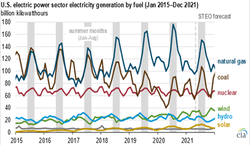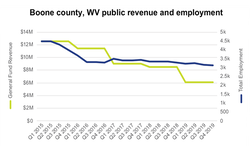|
By: Tiffany Sill An original photo by Jasmine Monroe. Hot Topic: The Scientific Evidence of Global Climate Change Global climate change is already occurring. The NOAA National Climatic Data Center has records showing the average surface temperature of the Earth has risen by 1°C (2°F) since the 1951-1980 mean. The acidity of the ocean surface (the top 100 meters) has increased roughly 30% and warmed about .33°C (.6°F) because it absorbs carbon dioxide from emissions. The Antarctic ice sheet is shrinking at a rate of about 148 billion tons per year. Glaciers are retreating in the Alps, Alaska, the Andies, the Rockies, and the Himalayas. Land-ice is melting causing sea-levels to rise by approximately 3.3 millimeters (.13in) per year, in addition by another 1 millimeter (.04in) per decade. Greenland alone is losing approximately 281 gigatons of ice per year. These changes are responsible for severe weather events such as droughts, floods, hurricanes, cyclones, and tropical storms, which continue to occur more frequently as conditions intensify. What’s worse is these events affect millions of lives and disproportionately take place in tropic and high latitude areas. In 2017, Hurricane Maria hit Dominica causing damages equaling over 220% of their GDP, and that doesn’t even touch on the loss of life associated with these phenomena. Over the past 30 years, global climate change has caused disasters with a monetary loss at a rate of approximately 2-3% of GDP per year for affected areas. The scientific community is in consensus that these phenomena are detrimental to all life on the planet, and if allowed to continue, surface temperatures will quickly become unable to sustain life.  Hurricane Maria devastated Dominica, Puerto Rico, and the Virgin Islands causing over $102 billion in monetary damages. Paying the Piper to Move Forward: The Cost of Carbon Carbon-based fuels need to be phased out, emissions need to be dramatically reduced, renewable energy sources need to be made more efficient and more widely available, and land use and agricultural practices need to be re-evaluated and modified to increase sustainability. Policymakers have proposed a carbon tax to raise funds for research and development and infrastructure updates.
A deep caveat for a climate-driven policy is the need for “stress tests,” which will model accuracy, depth, and stability of unprecedented policies which pose huge multifaceted risks for society. Prior to implementing a push toward low-carbon renewable energy sources, the efficacy of producing enough energy will need to be tested.
The quick enactment of policies would yield a detrimental effect on businesses and society. Boone County West Virginia, in example, showed the coal tax yielding a large financial strain on the entire community. This illustrates that climate-driven policies need to be carefully planned and executed to mitigate social disruption yet still reach the goal to make sure there is a planet for all of Earth’s inhabitants. Hope for the Future To reach global emissions targets, policy will need to account for the people who will be disproportionately affected by climate-based legislation. It will be necessary to build a framework to transition current carbon-industry workers into similar positions in the renewable energy sector. This creates the need for training programs to be implemented at the start of a decommissioning event. The Organization for Economic Cooperation and Development outlines an employee retraining program which will facilitate a skill transfer for engineering, technical, mechanical, business, and other types of positions from carbon-based industry into the renewable sector. There are a few decent examples of companies where this has been effective such as Anglo American a UK based mining company, and Siemens a German-based engineering company. Coal-based markets are already on the decline. There has been a 40% decrease in coal-fired power generation and the loss of 100,000 coal-based jobs since the 1980s. While renewable energy is on the uptick and becoming more and more cost effective every year.
1 Comment
|
Categories
All
Archives
March 2024
|





 RSS Feed
RSS Feed
